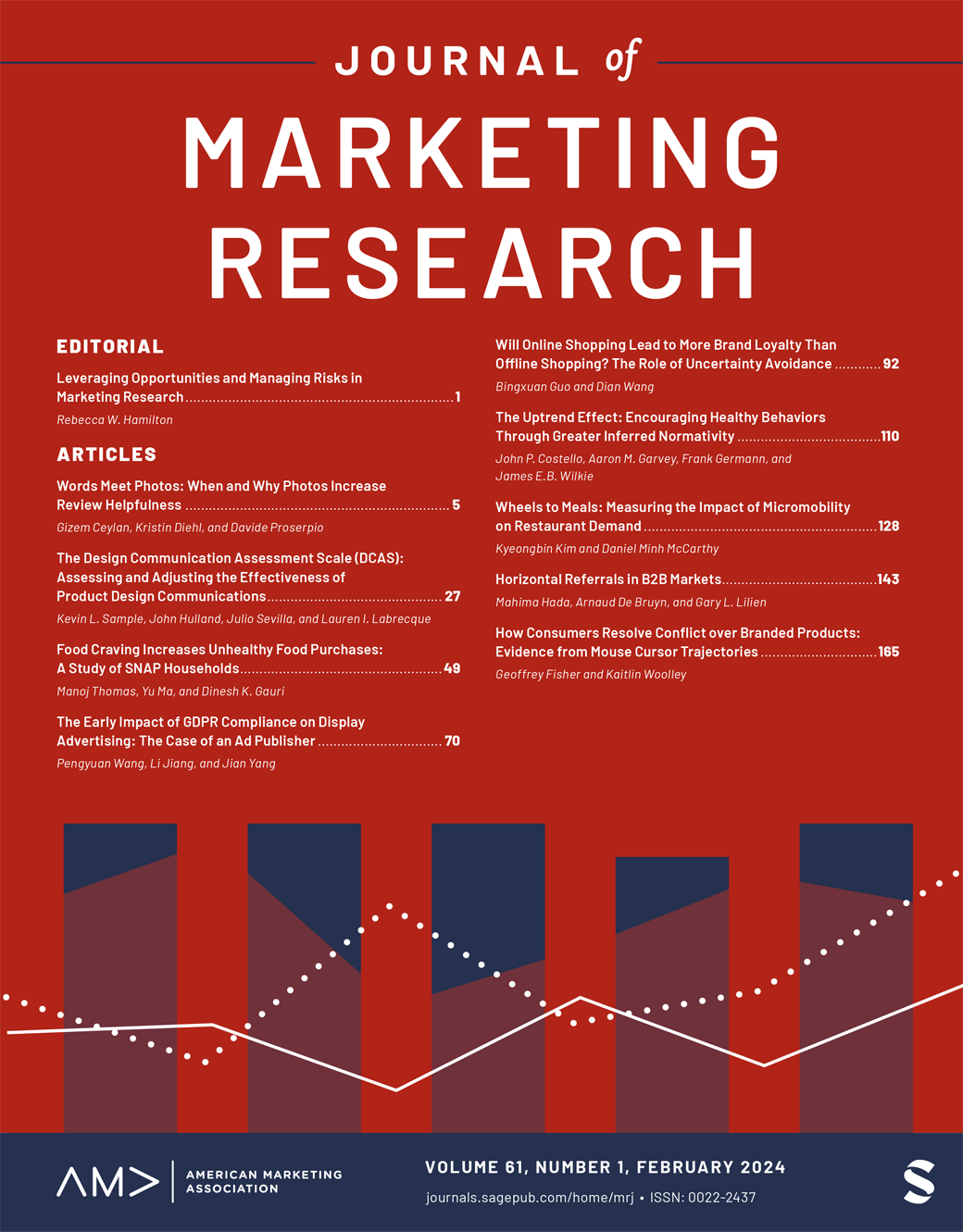快递:用钱支付还是用积分支付?浮动汇率与固定汇率如何影响忠诚度积分兑换
IF 5
1区 管理学
Q1 BUSINESS
引用次数: 0
摘要
尽管有关忠诚度积分兑换的研究几乎都集中在积分与货币之间的固定汇率上(例如,100 积分 = 1 美元),但我们在实践中经常看到可变的汇率(例如,100 积分可能相当于多于或少于 1 美元,这取决于货币价格以及在美国大陆兑换航班所需的积分)。这种可变费率在酒店业的忠诚度计划中尤为常见。在这项研究中,我们发现汇率的稳定性--不论汇率是固定的还是可变的--会系统地影响积分兑换。与固定汇率相比,当消费者观察到货币与积分之间的汇率可变时,即使积分的平均价值相同,他们也不太可能兑换忠诚度积分,而更愿意花钱消费。我们在一系列不同背景下的研究中证明了这一效应,包括一项激励兼容的零售忠诚度计划和一项酒店忠诚度计划。我们的研究表明,与固定汇率相比,可变积分兑换率会诱发更多的乐观情绪,从而减少积分兑换。乐观程度的个体差异和积分到期日会调节这种效应。最后,我们讨论了对忠诚度计划管理者和消费者的影响。本文章由计算机程序翻译,如有差异,请以英文原文为准。
EXPRESS: Paying with Money or Paying with Points: How Variable vs. Fixed Exchange Rates Influence Loyalty Point Redemption
Although research examining loyalty point redemption has focused almost exclusively on fixed exchange rates between points and money (e.g., 100 points = $1), we frequently observe variable exchange rates in practice (e.g., 100 points might equate to more or less than $1, depending on the monetary price and the required points for a flight redemption within the continental U.S.). Such variable rates are particularly common in loyalty programs in the hospitality industry. In this research, we show that the stability of the exchange rate – whether the exchange rate is fixed or variable across offers – systematically influences point redemption. Consumers are less likely to redeem loyalty points and instead spend money when they observe a variable exchange rate between money and points than when they observe a fixed exchange rate, even when the average value of points is the same. We demonstrate this effect in a series of studies across contexts, including an incentive compatible retail loyalty program and a hotel loyalty program. We show that a variable point exchange rate induces more optimism than a fixed exchange rate, reducing point redemption. This effect is moderated by individual differences in optimism and by point expiration date. We conclude by discussing the implications for managers of loyalty programs and consumers.
求助全文
通过发布文献求助,成功后即可免费获取论文全文。
去求助
来源期刊

Journal of Marketing Research
BUSINESS-
CiteScore
10.30
自引率
6.60%
发文量
79
期刊介绍:
JMR is written for those academics and practitioners of marketing research who need to be in the forefront of the profession and in possession of the industry"s cutting-edge information. JMR publishes articles representing the entire spectrum of research in marketing. The editorial content is peer-reviewed by an expert panel of leading academics. Articles address the concepts, methods, and applications of marketing research that present new techniques for solving marketing problems; contribute to marketing knowledge based on the use of experimental, descriptive, or analytical techniques; and review and comment on the developments and concepts in related fields that have a bearing on the research industry and its practices.
 求助内容:
求助内容: 应助结果提醒方式:
应助结果提醒方式:


